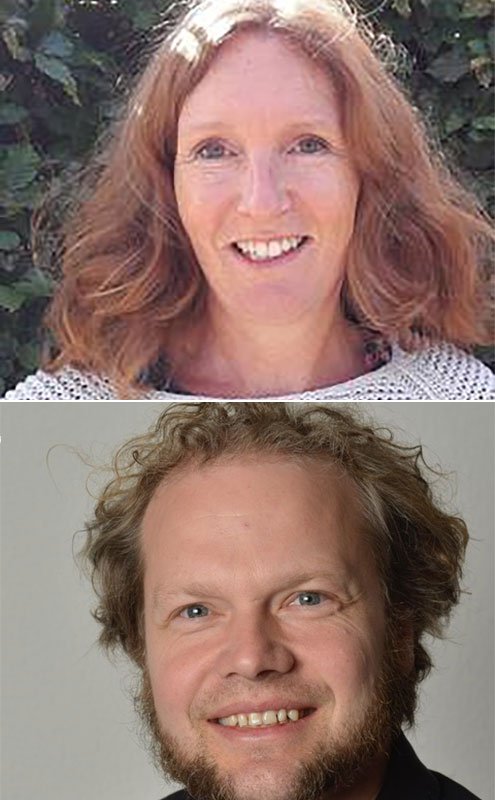- Share this article
- Subscribe to our newsletter
"A failed Food Summit – two years of energy and resources misguided"
Since the outbreak of the COVID-19 pandemic, the number of people suffering hunger world-wide has risen dramatically. Environmental disasters and the climate crisis have become further aggravated, while armed conflicts and wars are on the increase. The UN should long have initiated a trend reversal. However, the UN Food Systems Summit (UNFSS) convened by UN Secretary General António Guterres in New York/USA on the 23rd September 2021 clearly missed its marked.
Neither did the Summit put the right to food for all centre stage or hear the groups affected by hunger and poverty, nor did it muster all its energy to globally coordinate coping with the COVID-19 pandemic and its impacts. Instead, it created more scope for the interests of philanthropic organisations and profit-seeking corporations and banks. The latter represent an intensive, industrial model of agriculture and growing corporate power. Thus they range among the chief perpetrators of the global food and climate crisis.
We criticise the structure, management, design and running of the Summit as well as the planned continuation of the Summit agenda and multi-stakeholder structures, both in the UN and at regional and national levels. For years, we, as well as social campaigns and civil society organisations world-wide – have been calling for a fundamental transformation of the existing food systems based on human rights and agro-ecological principles as well as the retaining of an inclusive steering of the UN Committee on World Food Security (CFS).
Our observations, the official final declaration by the UN Secretary General and the various declarations of intent in the context of the UNFSS have led us to the following initial assessments:
- This Summit was the first UN Food Summit held without a mandate from the UN General Assembly. Its results should therefore be regarded merely as recommendations given by the UN Secretary General.
- The Summit ignored the considerable imbalances in power among the various actors in the predominantly industrial food system and their causes, and it failed to deliver measures to overcome these imbalances.
- Its focus was on increases in production and investment options by way of corporate-style digital technologies and innovations as well as nature-based production – intensive agriculture with a sustainability label, the funding of which could further aggravate structural problems such as safeguarding intellectual property rights for seed and knowledge as well as data and land grabbing.
- The organisers seek to further develop the Summit’s multi-stakeholder structure through a follow-up process in the UN, weakening the role of states as institutions accountable to the public and relieving them from their primary responsibility. Conflicts of interest are not discussed.
- The Secretary General’s final declaration refers to a hub for the implementation of the conference results which should be located at the UN organisations in Rome, Italy, i.e. the Food and Agriculture Organization (FAO), the International Fund for Agricultural Development (IFAD) and the World Food Programme (WFP). A hub of this kind directly competes with the CFS, which is regarded as the most inclusive UN body thanks to its civil society mechanism (CSM), and would thus severely undermine the right of stakeholders to have a say in matters.
Regrettably, in its statement the German Federal Government failed to stand up for maintaining and strengthening the CFS at the Summit and appears to support the creation of new, parallel structures competing with the CFS. Neither did it refer to the human right to food as an important basis for action. At the same time, it is participating with regard to content and finance in so-called coalitions for action which arose in the run-up to the Summit. These multi-stakeholder alliances are based on an arbitrary and extremely opaque associating of various actors and are to advise governments on certain Summit topics in the planned UNFSS follow-up process.
We expect the Federal Government to speak out against financing and continuing the UNFSS coalitions for action and against establishing new, parallel organisational structures in Rome as well as a possible working group within the CFS on the UNFSS in the Summit follow-up process and also in the next CFS Plenary Session. Rather, it should support a stronger role and better financing (core funding through the Rome-based agencies) of the CFS as well as a strand of work there on handling the impacts of the COVID-19 pandemic.
The full AGLE statement (in German) can be found at: https://www.forumue.de/ernaehrungsgipfel-gescheitert-zwei-jahre-energie-und-ressourcen-in-die-falschen-bahnen-gelenkt/
Further reading: Rural 21, issue 3/21 on "Food systems, nutrition and the SDGs"





Add a comment
Be the First to Comment